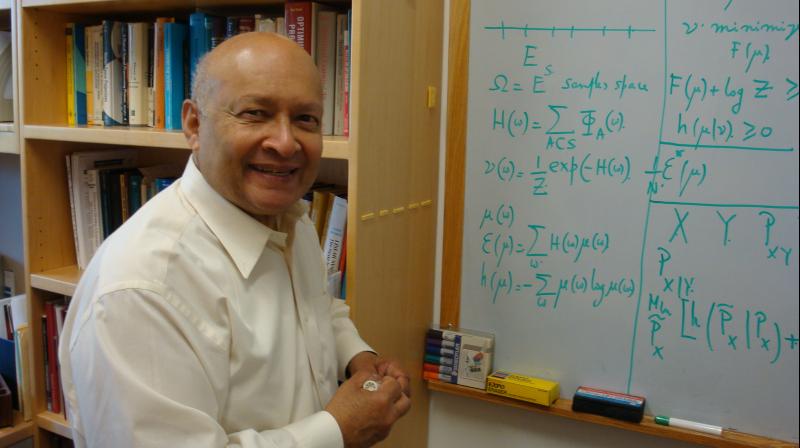'Renaissance Man of telecom'
This is only the sixth time in the society's almost half century history that the award has been given.

The US-based Marconi Society, has conferred on legendary Stanford University professor, Thomas Kailath, its Lifetime Achievement Award.
This is only the sixth time in the society’s almost half century history that the award has been given. Earlier recipients have included such giants of Information Technology as Claude Shannon, the 'father of Information Theory' and Gordon Moore of "Moore's Law" fame.
Professor Kailath is Hitachi America Professor of Engineering, Emeritus, at Stanford University (US).
The award recognises Professor Kailath for his contributions to information and system science over six decades as well as his sustained mentoring and development of new generations of scientists.
This Renaissance Man of infotech has contributed to information theory, communications, filtering theory, linear systems and control, signal processing, semiconductor manufacturing, probability and statistics, linear algebra, matrix and operator theory... many of these have directly or indirectly advanced the modern communications technology behind Wi-Fi and 4G/5G.
Kailath and his students hold a dozen patents, and together with them he co-founded four companies, two of which went public: Integrated Systems, Inc., founded in 1980 and now part of Intel, and in 1996, Numerical Technologies, Inc., acquired by Synopsis in 2003.
Prof. Kailath's also fostered a rigorous research culture at Stanford, while mentoring an array of over a hundred doctoral and postdoctoral scholars, many of whom have gone on to become leaders in academia and in the industry. They include Arogyaswami Paulraj, currently Emeritus Professor in the electrical engineering department at Stanford University, who was himself honoured with the Marconi Prize in 2014.
Kailath and Paulraj, are joint holders of the original US patent for MIMO technology which underpins the technology that drives every WiFi, 4 G, and 5G network today and helps to make them more efficient.
Says Dr Paulraj: "Thomas Kailath has been an influential mentor to a number of Indian academics, including me, who worked in communications and control theory. He hosted many of us at his research group at Stanford University, even in lean times when federal funding was tight. We in India can take special pride in Prof. Kailath's remarkable achievements."
Kailath, earned a Bachelor’s degree in Telecommunications Engineering from the College of Engineering, Pune, in 1956 and came to the Massachusetts Institute of Technology ( MIT) in 1957 with a research assistantship in the Information Theory Group where his work generated widespread notice. He was the first Indian-born student to earn a doctorate at MIT.
In January 1963, he accepted an associate professorship at Stanford and spent almost all his professional life there, building the Information Systems Laboratory there into a world-leading centre for communications, control and signal processing research.He is the first holder of the Hitachi America Professorship in Engineering at Stanford and became Emeritus in June 2001. The Indian government conferred the Padma Bhushan on Prof Kailath in 2009.
Kailath will receive his award at the annual Marconi Society Awards dinner in Summit, New Jersey, on October 3, where another Indian, former Bell Labs President Arun Netravali, the “father of digital video”, will be honoured with the $100,000 Marconi Prize.
Written by Anand Parthasarathy
